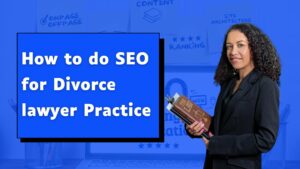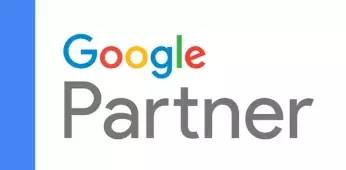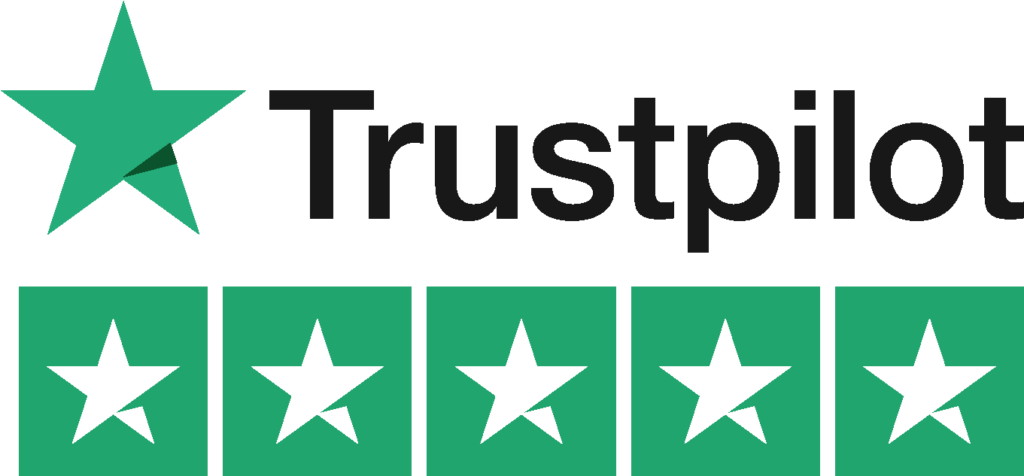Hey there! If you’re reading this, you’re probably interested in learning more about SEO and how you can become an SEO pro. Great news – you’ve come to the right place! In this blog, we’ll dive into what SEO is, why it’s important, and how you can become an expert in the field.
What is SEO? Simply put, SEO stands for “search engine optimization.” It’s the process of optimizing your website to rank higher in search engine results pages (SERPs) for certain keywords or phrases.
When someone searches for something online, they typically use a search engine (like Google) to find what they’re looking for.
The search engine then returns a list of results that it believes are the most relevant to the user’s query.
Here are a few interesting statistics about SEO:
- 93% of online experiences begin with a search engine (Source: BrightEdge)
- 75% of users never scroll past the first page of search results (Source: SparkToro)
- The first organic search result gets 33% of clicks (Source: BrightEdge)
- 81% of businesses consider their blog to be a key part of their SEO strategy (Source: Hubspot)
- 50% of all searches will be voice searches by 2020 (Source: ComScore)
- The average first page result on Google contains 1,890 words (Source: Backlinko)
- Businesses that blog receive 97% more links to their website (Source: Hubspot)
Why is SEO important?
SEO is important for a few reasons. First and foremost, it helps your website get more visibility. When your website ranks higher in search results, more people are likely to click on it, which means more traffic to your site. This increased traffic can lead to more leads, sales, and revenue for your business.
SEO is also important because it helps improve the user experience. When a search engine returns results that are relevant and useful to the user, they are more likely to have a positive experience on the website and be more likely to return in the future. This is beneficial for both the user and the website owner.
SEO is also important for local businesses. When someone searches for a local business or service, search engines like Google often display a map with a list of local businesses that match the user’s query. If your business is listed on this map, it can get a lot of visibility and traffic from people searching for local products or services.
Finally, SEO is important because it can give you a competitive advantage. If two websites are selling the same product or service, the one that ranks higher in search results is more likely to get the sale. By optimizing your website for search engines, you can increase your chances of ranking higher and getting more business.
What is SEO?
Now that you know why SEO is important, let’s delve into what it is. As mentioned earlier, SEO is the process of optimizing your website to rank higher in search results for certain keywords or phrases.
But how does this process work?
To understand SEO, it’s important to first understand how search engines work. When a search engine like Google receives a search query, it sends out “spiders” to crawl the web and gather information about all the websites it can find.
It then stores this information in its database and uses algorithms to determine which websites are the most relevant and useful to the user’s search query.
There are several key components to SEO: keywords, content, links, and technical SEO. Let’s take a closer look at each of these.
Keywords
Keywords are words or phrases that people use when searching for something online.
For example, if someone is looking to buy a new pair of shoes, they might search for “best running shoes” or “affordable sneakers.”
When optimizing your website for search engines, it’s important to use keywords that people are actually searching for. This will help your website rank higher in search results for those keywords.
Content
Content refers to the text, images, videos, and other media on your website. When it comes to SEO, it’s important to have high-quality, relevant content on your website.
This means that your content should be useful, informative, and unique. It should also be optimized for the keywords you’re targeting.
For example, If you’re selling running shoes and you’re targeting the keyword “best running shoes,” your content should include information about the features and benefits of your running shoes, as well as why they are considered the best.
It should also include the keyword “best running shoes” several times throughout the text, as well as in the title tags and meta descriptions (more on these later).
Links
Links are an important part of SEO. Search engines use links to crawl the web and determine which pages are important and relevant.
When a page has a lot of high-quality, relevant links pointing to it, search engines consider it to be a valuable resource and may rank it higher in search results.
There are two types of links: internal links (links that point to other pages on your website) and external links (links that point to other websites). Both are important for SEO.
Technical SEO
Technical SEO refers to the behind-the-scenes aspects of SEO that help search engines crawl and index your website more easily. It’s important to ensure that your website is technically optimized in order to improve its ranking in search results.
Some common elements of technical SEO include:
- Site structure: A well-structured website makes it easier for search engines to crawl and index your pages. This includes things like using a clear hierarchy of header tags (H1, H2, etc.), having a sitemap, and using descriptive and relevant URLs.
- Page speed: A slow-loading website can discourage users from staying on your site and can also negatively impact your ranking in search results. It’s important to optimize the loading speed of your pages by compressing images, minifying CSS and JavaScript, and using a content delivery network (CDN).
- Mobile-friendliness: With the increasing number of users accessing the web on mobile devices, it’s important to ensure that your website is mobile-friendly. This includes using a responsive design and optimizing the layout and user experience for mobile users.
- Security: Ensuring that your website is secure is important not only for user trust, but also for search engines. Google has stated that they may give a ranking boost to websites that are secure (using HTTPS).
By focusing on technical SEO, you can help improve the crawlability, indexability, and overall user experience of your website, which can lead to a higher ranking in search results.
On-page SEO
On-page SEO refers to the optimization of individual web pages in order to rank higher and earn more relevant traffic in search engines. There are several factors that can affect your on-page SEO, including the title tag, meta description, header tags, and the content of your page. Let’s take a closer look at each of these.
1. Optimizing title tags and meta descriptions
The title tag and meta description are two of the most important on-page SEO elements. The title tag appears in the search results as the blue clickable link, while the meta description appears as the black text underneath the title.
Both of these should include the keyword you’re targeting, as well as be compelling and informative to encourage users to click on your website.
2. Creating high-quality, relevant content
As mentioned earlier, it’s important to have high-quality, relevant content on your website. This means that your content should be useful, informative, and unique. It should also be optimized for the keywords you’re targeting.
If you’re selling running shoes and you’re targeting the keyword “best running shoes,” your content should include information about the features and benefits of your running shoes, as well as why they are considered the best.
3. Using header tags appropriately
Header tags are used to create a hierarchy of information on a webpage. There are six levels of header tags (H1-H6), with H1 being the most important and H6 being the least.
When it comes to SEO, it’s important to use header tags appropriately to indicate the structure of your content and to make it easier for search engines to understand the relevance of your content.
4. Optimizing images and videos
In addition to text, it’s also important to optimize images and videos on your website for SEO. This includes using descriptive, keyword-rich file names and alt tags for images, as well as optimizing the size and loading speed of your images.
For videos, it’s important to transcribe the audio and include a keyword-rich description.
5. Optimizing for user intent
It’s important to understand the intent behind the keywords that users are searching for and create content that satisfies that intent. For example, if someone is searching for “best running shoes,” they are likely looking for a list of the top-rated running shoes. By creating content that meets this user intent, you can improve your chances of ranking higher in search results.
Off-page SEO
Off-page SEO refers to the optimization of factors that are external to your website, but can still affect your ranking in search results. There are several things you can do to improve your off-page SEO, including building backlinks, maximizing your social media presence, and utilizing local SEO techniques.
1. Building backlinks from reputable websites
Backlinks are links from other websites that point to your website. Having high-quality, relevant backlinks pointing to your website can help improve your ranking in search results, as it tells search engines that your website is a valuable resource.
However, it’s important to note that not all backlinks are created equal. It’s better to have a few high-quality backlinks from reputable websites than a lot of low-quality backlinks from spammy websites.
2. Maximizing social media presence
Social media can also be a powerful tool for SEO. By having a strong presence on social media platforms like Facebook, Twitter, and Instagram, you can drive more traffic to your website and improve your search ranking.
It’s also a good idea to include social media sharing buttons on your website to make it easy for users to share your content.
3. Utilizing local SEO techniques
If you’re a local business, it’s important to utilize local SEO techniques to improve your ranking in search results. This includes optimizing your Google My Business listing, getting listed in local directories, and including your address and phone number on your website.
Advanced SEO tactics
Now that we’ve covered the basics of SEO, let’s delve into some more advanced tactics that can help take your SEO to the next level.
1. Using tools and software to track and analyze rankings
There are a number of tools and software that can help you track and analyze your search rankings. Some popular options include Google Analytics, SEMrush, and Ahrefs. These tools can help you understand how your website is performing in search results and identify areas for improvement.
2. Implementing schema markup
Schema markup is a type of code that you can add to your website to help search engines understand the meaning of your content. By adding schema markup, you can improve the way your website appears in search results, making it more likely to stand out and get clicked on.
3. Utilizing voice search optimization techniques
As more and more people are using voice assistants like Amazon Alexa and Google Assistant to search the web, it’s important to optimize for voice search. This includes using long-tail keywords and natural language, as well as ensuring that your website is mobile-friendly and has a fast loading speed.
4. Using long-tail keywords
Long-tail keywords are more specific, longer phrases that are less competitive than shorter, more general keywords. By targeting long-tail keywords, you can have a better chance of ranking higher in search results and driving more relevant traffic to your website.
5. Creating content for featured snippets
Featured snippets are short, concise answers to user queries that appear at the top of the search results. By creating content that is optimized for featured snippets, you can increase your chances of appearing in this prime real estate and driving more traffic to your website.
6. Implementing accelerated mobile pages (AMP)
AMP is an open-source project that aims to improve the loading speed of web pages on mobile devices. By implementing AMP, you can improve the user experience of your website and potentially improve your ranking in search results.
7. Utilizing content marketing
By creating high-quality, relevant content and promoting it through various channels (such as social media and email), you can drive more traffic to your website and improve your ranking in search results.
How to become an SEO pro
So, you want to become an SEO pro? Great! Here are a few tips to help you get started:
- Stay up-to-date with the latest industry trends and best practices. SEO is an ever-evolving field, so it’s important to stay informed about the latest developments and best practices. You can do this by reading industry blogs, attending conferences and seminars, and participating in online communities.
- Continuously learning and expanding your knowledge. There’s always more to learn when it comes to SEO. Make an effort to continuously expand your knowledge and skills by reading books, taking online courses, and experimenting with different tactics.
- Experimenting with different tactics to see what works best for your website. SEO is not a one-size-fits-all solution. What works for one website may not work for another. It’s important to experiment with different tactics and see what works best for your specific website and target audience.
- Working with a team or collaborating with other SEO professionals. SEO can be a complex and time-consuming process, so it can be helpful to work with a team or collaborate with other SEO professionals. This can help you share ideas and resources, and learn from each other’s experiences.
Conclusion
In conclusion, SEO is an important tool for businesses and individuals looking to improve their online visibility and drive more traffic to their website.
By understanding how search engines work and optimizing your website for keywords, content, links, and technical SEO, you can improve your ranking in search results and get more relevant traffic to your website. There are also advanced tactics, like using tools to track and analyze rankings and implementing schema markup, that can help take your SEO to the next level.
To become an SEO pro, it’s important to stay up-to-date with the latest industry trends and best practices, continuously learning and expanding your knowledge, experimenting with different tactics, and working with a team or collaborating with other professionals.
So, if you’re ready to take your SEO skills to the next level, start implementing the tactics and techniques discussed in this blog, and keep learning and improving along the way. Trust us – your website (and your business) will thank you.

















